The purpose of marketing campaign management is to ensure that you generate high returns with less investment for your marketing campaigns. For that, a marketing manager pulls plenty of tricks out of their sleeves from time to time. Some work while others have little to no impact. However, following the basics right ensures that your marketing campaign at least does not fail.
Marketing campaign management talks about those basics and beyond.
In this post, we will learn about what is marketing campaign, marketing campaign management, its types, and benefits, and how to create a successful marketing campaign.
What is a marketing campaign?
A marketing campaign is a marketing effort to achieve business goals. It has a single message that is communicated through various channels and usually has a single large goal.
For example, you may run a marketing campaign to launch a new product into the market for existing customers. Or a new business may run a marketing campaign to introduce itself into the market to new customers.
A company’s marketing strategy can have several campaigns under a marketing plan running simultaneously to achieve the desired business outcomes.
What is marketing campaign management?
Marketing campaign management is the process of planning, executing, tracking, and evaluating a marketing campaign. It is the art of orchestrating the entire lifecycle of a marketing campaign.
The purpose of marketing campaign management is to make the most of the marketing efforts, resources, time, and money. Usually, a marketing manager is responsible for end-to-end campaign management.
Benefits of marketing campaign management
Marketing campaign management tries to maximize returns on investment. This results in the following benefits of utilizing marketing campaign management for an organization:
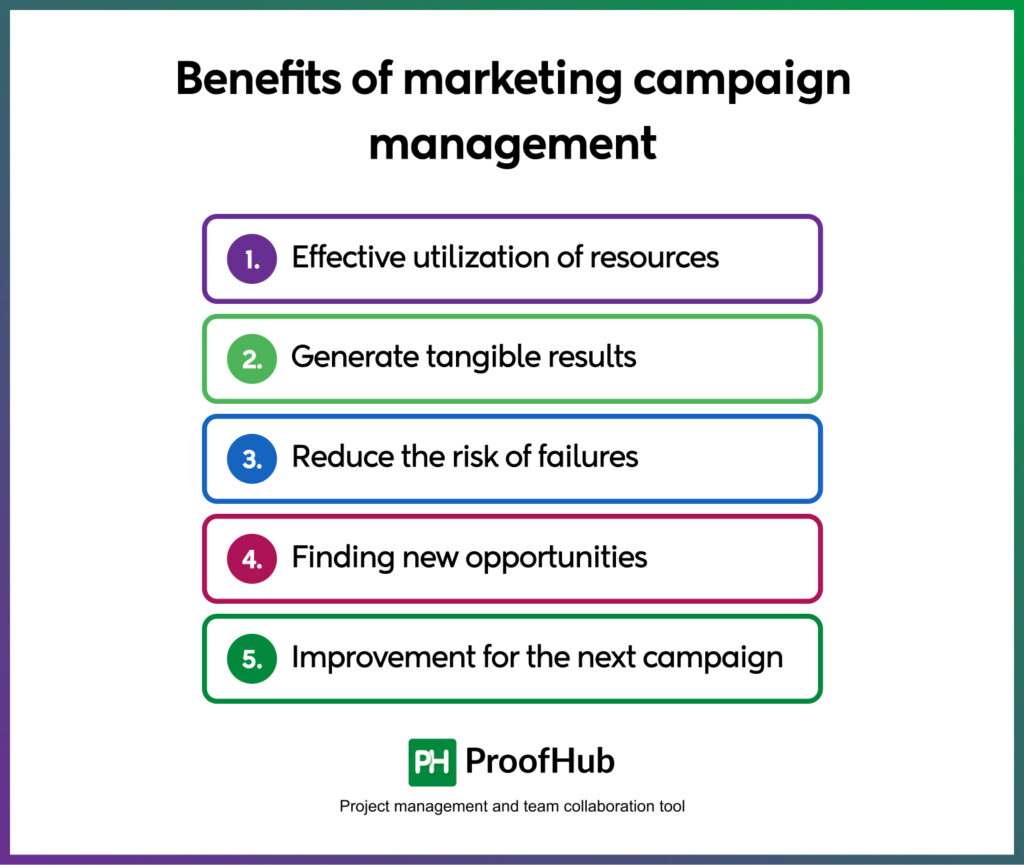
- Effective utilization of resources: Whether it is time, money, or human resources, marketing campaign management focuses on making effective utilization of resources by clearly aligning the marketing goals to the organization’s success.
- Generate tangible results: Marketing campaign management defines what you want to achieve from marketing efforts and quantifies it. So rather than just hitting any target or generating any value, it defines in tangible terms what you seek to achieve.
- Reduce the risk of failures: Digital campaign management offers a structured, tested, and directed approach to executing marketing efforts. You track results, receive feedback, iterate, and improve. This results in a reduced risk of complete failure of a marketing campaign.
- Finding new opportunities: Marketing campaign management includes constant research and evaluation of current marketing strategies, markets, and competitors. This helps you identify and find the opportunities before the competitors.
- Improvement for the next campaign: Tracking and monitoring provide you with the data and create reports to evaluate the marketing campaign. This helps you draw learning from your previous campaign and implement it in the next campaign for better performance.
How to create a marketing campaign?
Crafting a successful marketing campaign needs careful planning, teamwork, and getting things done just right. Luckily, tools like ProofHub have everything you need to make it easy. It helps you organize tasks, work together, and make sure your marketing efforts are on point and successful.
Here’s how to set up your marketing campaign:
- Define goals: Every marketer wants to achieve some goals from a marketing campaign. Thus, the first step to creating an effective campaign is to clearly define what you want to achieve. This helps you set the right direction for the marketing campaign.
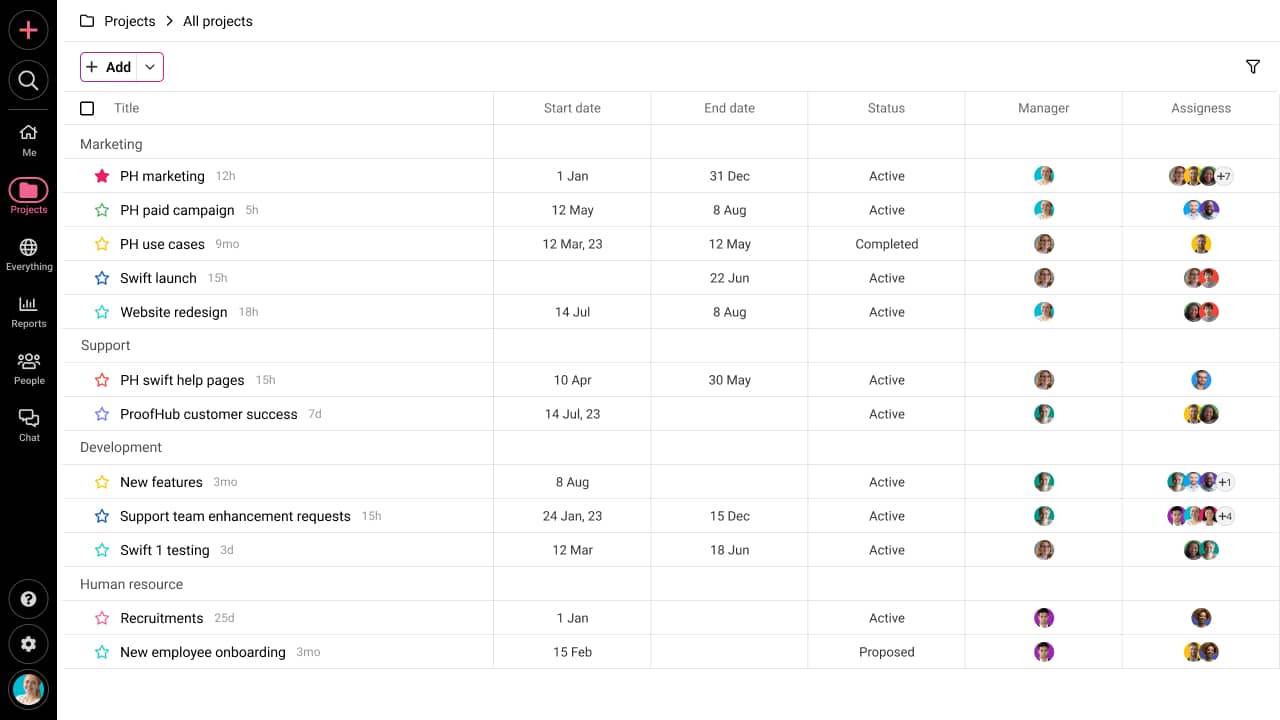
- Know your budget: To achieve the goals of a campaign, you need resources. Thus, you need to define how much you have to invest in your marketing campaign. This will help you plan your campaign finances better and ensure it has sufficient financial support to achieve its objectives.
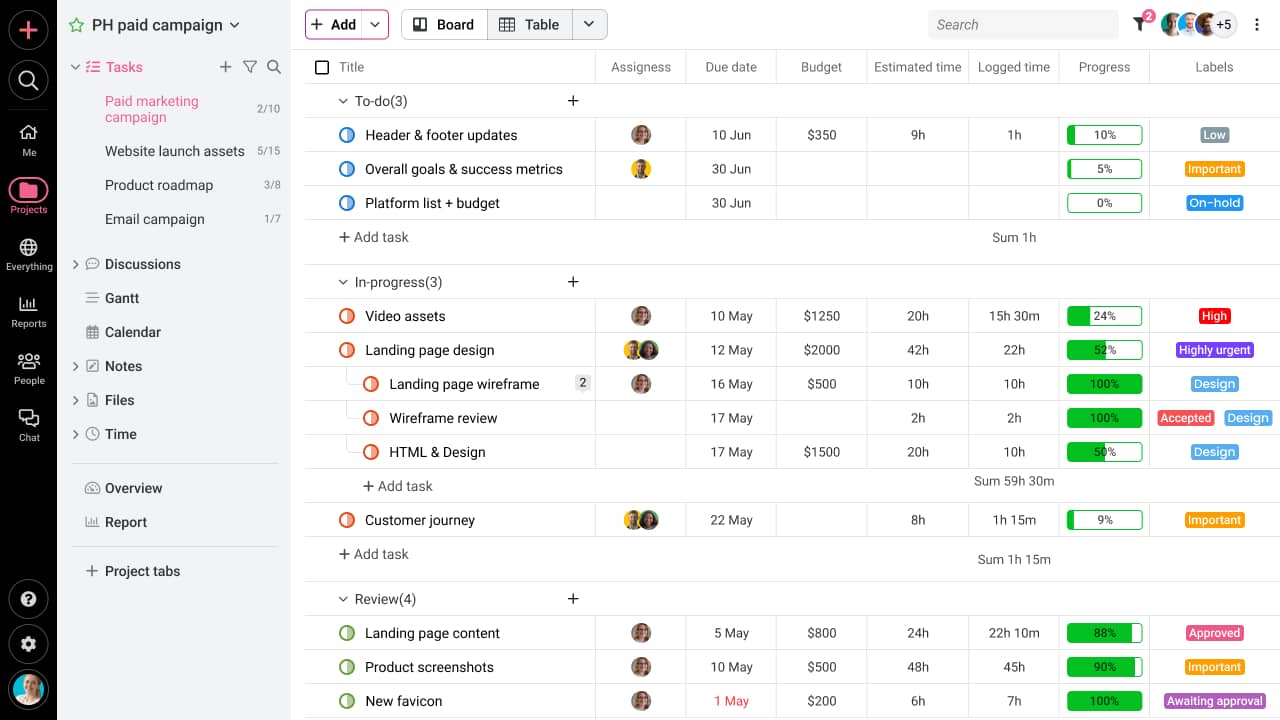
- Decide on your target audience: Now you know what you have to achieve and what your budget is. It is time to define the target audience. This is because showing even the best of the content to the wrong audience will not produce any returns. This will result in a waste of time, effort, and money. Clearly define your target audience, create an ideal customer profile, and define the buyer persona.
- Create a content strategy: The next step is to create the content for your marketing campaign. Create your content strategy based on target audience preferences. Here you need to decide on three things:
- The type of content
- The marketing techniques
- The channels your target audience prefers
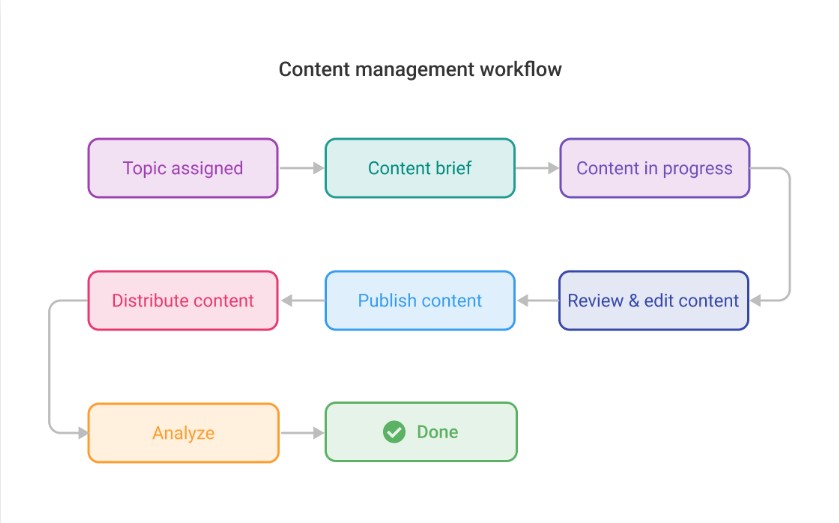
Create and manage custom workflows with ProofHub
- Break down tasks
- Create a task list encompassing all the essential steps for the campaign—from planning to execution and analysis.
- Set up milestones for crucial stages of the campaign, such as content creation, design, launch, and post-campaign analysis.
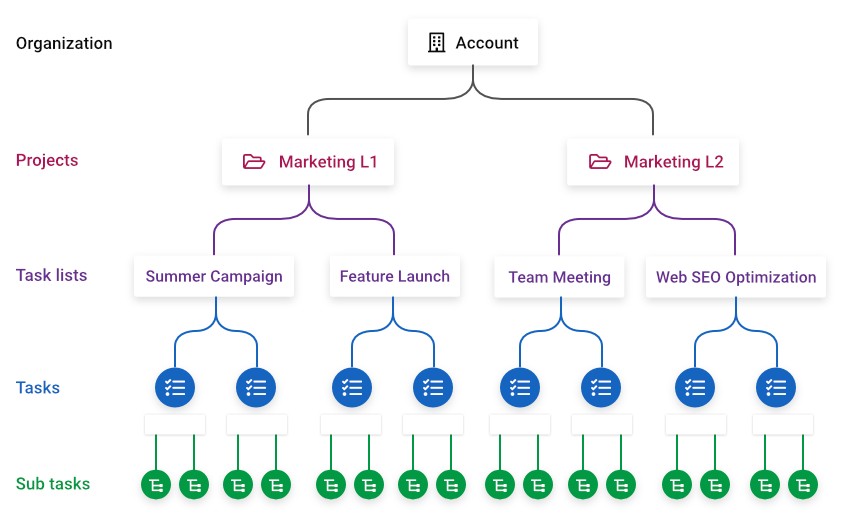
- Assign tasks and roles
- Assign responsibilities to team members involved in the campaign. Specify who will handle tasks like content creation, design, social media management, advertising, etc.
- Set deadlines for each task to maintain accountability and keep the campaign on track.
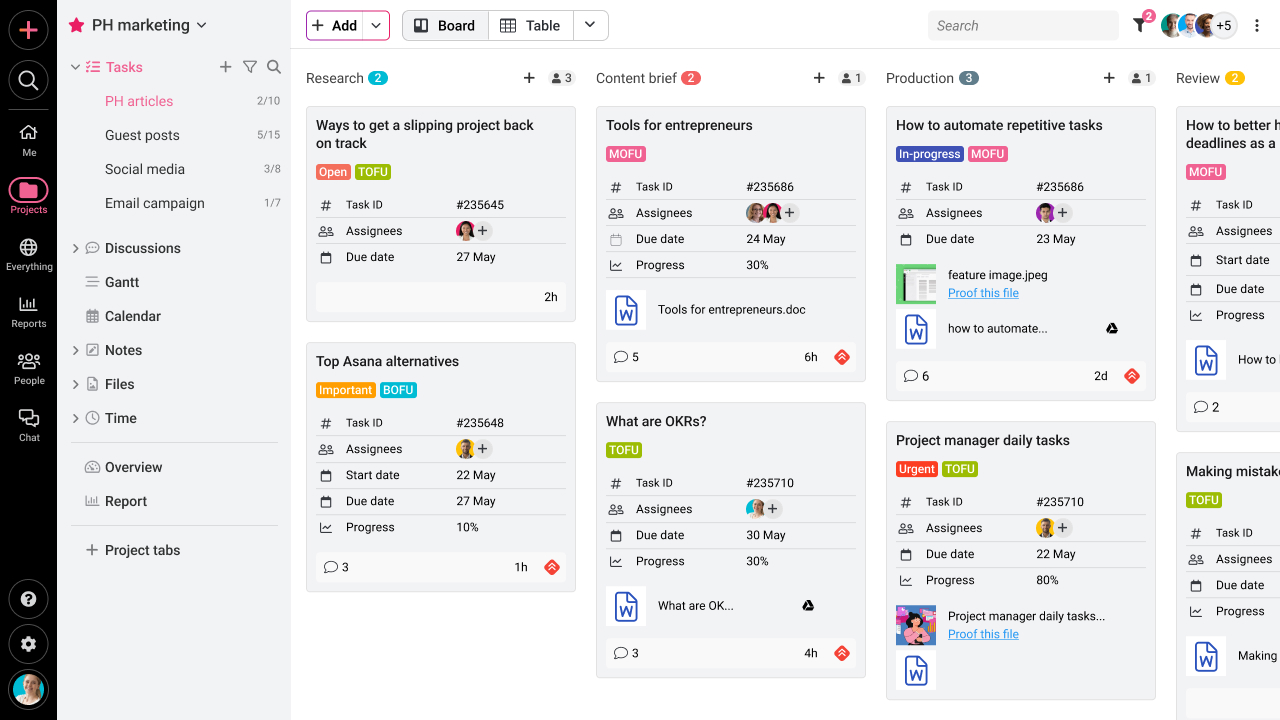
- Collaborate efficiently
- Utilize ProofHub’s collaboration features such as discussions, comments, and file sharing to facilitate communication among team members.
- Use @mentions to draw attention to specific tasks or updates, ensuring everyone stays informed.
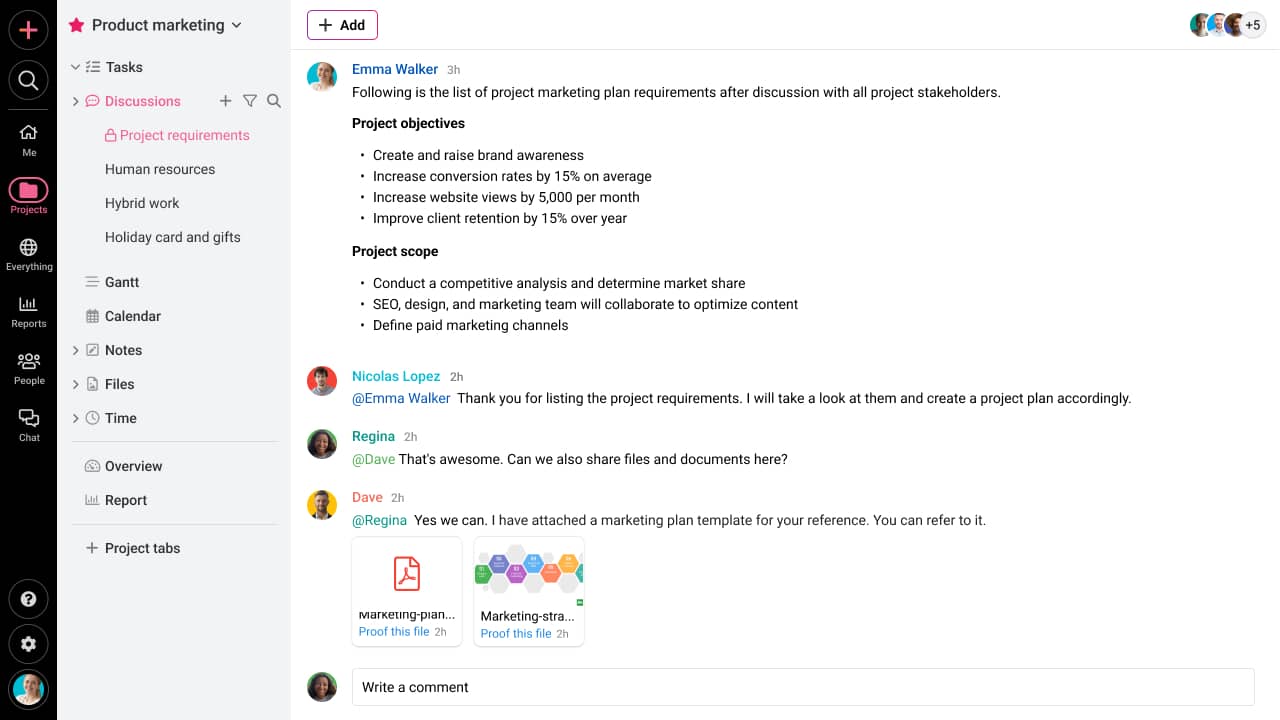
- Monitoring and tracking: You cannot run a successful marketing campaign without monitoring. It is because without tracking you do not not even know how your campaign is performing. Therefore, track the marketing efforts to take control and measure the success of the campaign.

- Manage campaign assets
- Upload campaign-related assets like images, videos, ad copies, and documents to the project folders.
- Share these assets with relevant team members for seamless access and collaboration.
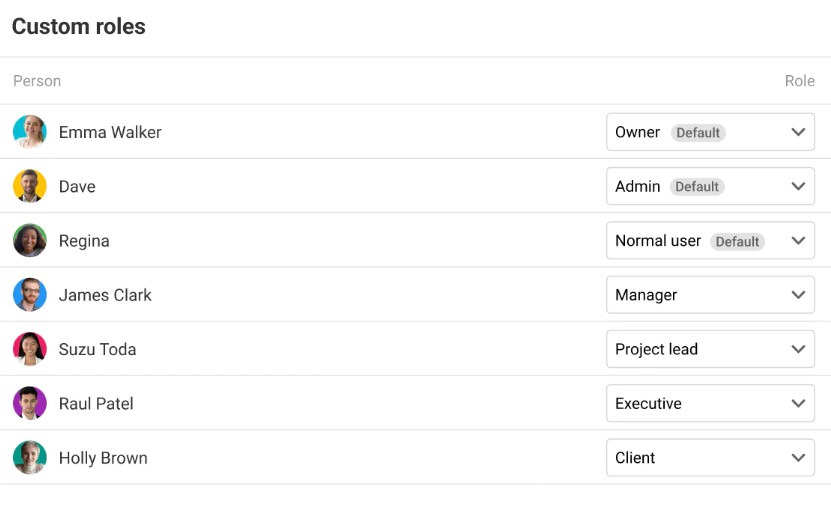
Explore how ProofHub simplifies campaign management, boosts productivity, and delivers impactful results. Visit ProofHub’s marketing project management page to see how it can elevate your marketing efforts.
What are the different types of marketing campaigns?
Conceptually, there is no difference in various types of marketing campaign management because all serve the same purpose. However, depending on the use case, marketing campaign management can be divided into different types.

Here are some of the most important types of marketing campaign management:
1. Product marketing campaign
A product marketing campaign focuses on creating awareness for launching a new product into the market. The focus is on the product, not on the brand. A marketer tries to make the targeted customers aware of the product and demonstrates its value.
2. Brand awareness campaign
A brand awareness marketing campaign is about making people aware of your brand. It does not focus on the product, but rather on informing people who you are as a brand, what you stand for, and why customers should pay attention to you. A marketer tries to establish the brand identity by building an emotional connection with the targeted audience.

The strategies and content used in this campaign are quietly different from the content used in product marketing campaigns.
For example, in a brand awareness campaign, you may want to seek the attention of the audience by utilizing the brand image of existing players in the market. It is because people do not know you and they need references to relate to you.
But, in product marketing, the focus is entirely on how your particular product or service is better than others. You do not want the attention to be let off from your product. You want to portray your product or service as the best in the market.
3. Community building campaign
Community-building campaigns are all about building the community of your loyal customers. It focuses on helping, rewarding, and engaging customers regularly with the purpose of increasing retention.
It is quite different from a product marketing or brand awareness campaign. It does not talk about why you are the best, rather focuses on accepting the shortcomings, addressing customers’ concerns, and assuring that you as a brand are there to help your community.
Similarly, you can also create various types of marketing campaign management based on the platform used, purpose, and even the type of marketing technique used.
What are the key elements of a successful marketing campaign?
All marketing campaigns go through some elementary stages. Have a look at the key elements of a successful marketing campaign:
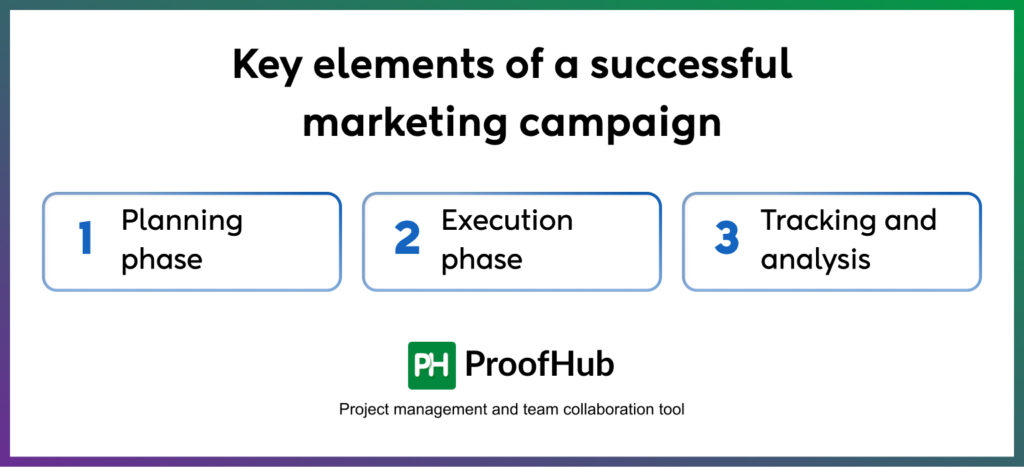
A. Planning phase
It involves finding out what you want to achieve from your marketing campaign, how you want to achieve it, and what resources you have. A marketing manager and other internal stakeholders brainstorm in this stage to find a mutually agreed approach for marketing project management.
B. Execution phase
It involves executing what you have planned. You deal with team members who are directly working on the campaign. A manager tries to execute the plan and deal with risks and challenges that come during the campaign in this phase.
C. Tracking and analysis
It is the part of both execution and post-execution. It includes tracking the marketing efforts to measure the performance of the campaign and make improvements based on the data. Evaluation and analysis are usually performed at the end of the campaign to draw helpful insights to adopt for the next campaign.
Tips and strategies for successful campaign management
We have covered the basic steps of creating a marketing campaign. Now, let’s have a look at some practical tips that will help you create a successful marketing campaign management process.
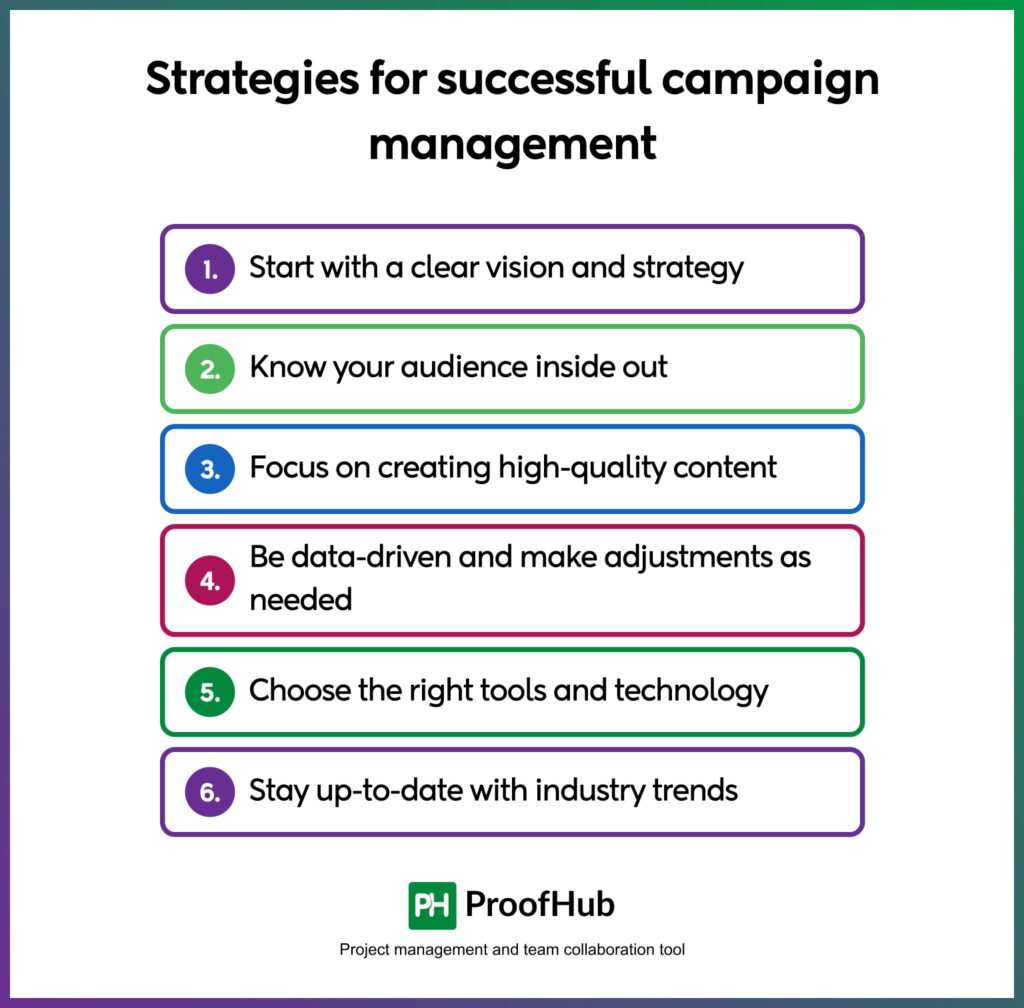
1. Start with a clear vision and strategy
Do not just plainly set goals. Set measurable goals. The most popular framework is SMART. It says a goal should be specific, measurable, achievable, relevant, and time-bound. A manager plays a key role in setting up the measurable goals. However, it is always a great idea to involve other key stakeholders for better alignment.
2. Know your audience inside out
You cannot create the same marketing message for everyone. This is because not all of your target audience share similar interests. Therefore, to provide relevant marketing content to your audience, segment your audience with similar interests together. Segmentation can be performed on the basis of age, gender, location, interests, and numerous other predefined attributes.
3. Focus on creating high-quality content
89% of marketers see a positive ROI when they use personalization in their campaigns.
Personalized content has taken over the marketing world by providing authentic recommendations to customers based on their past behaviors.
Try to create more and more personalized content. It can include targeted ads based on cookies, sending emails when a customer is most likely to open an email, sending personalized emails, and similar other strategies.
4. Be data-driven and make adjustments as needed
Analytics is the foundation for improvement in your marketing campaign. Regularly track marketing metrics and review key performance indicators to take control of your marketing campaign. If you see a drop in some areas, try to channel efforts to make improvements in those areas.
Similarly, if you see a particular marketing strategy doing great, invest resources in strategies that drive positive outcomes.
5. Choose the right tools and technology
Running a marketing campaign comes with a fair share of repetitive and administrative tasks. This can eat a significant chunk of your time. Use marketing automation to help you and your team save time and effort.
A recent study suggests that 76% of businesses use marketing automation.
Invest in the right marketing tools and technology that can help you better track your campaign, improve the execution of marketing efforts, and automate repetitive tasks to improve the efficiency of the team.
6. Stay up-to-date with industry trends and best practices
Marketing is a pretty dynamic world. You need to stay up to date with the latest technologies and market trends to make the most out of the arising opportunities. Keep enhancing your marketing knowledge to make improvements in your marketing campaign management.
What is the best digital marketing campaign management solution?
Marketing campaign management relies on collaboration, tracking, and working together. Thus, you need a competent digital marketing campaign management solution that provides you with a centralized platform to work together and collaborate.
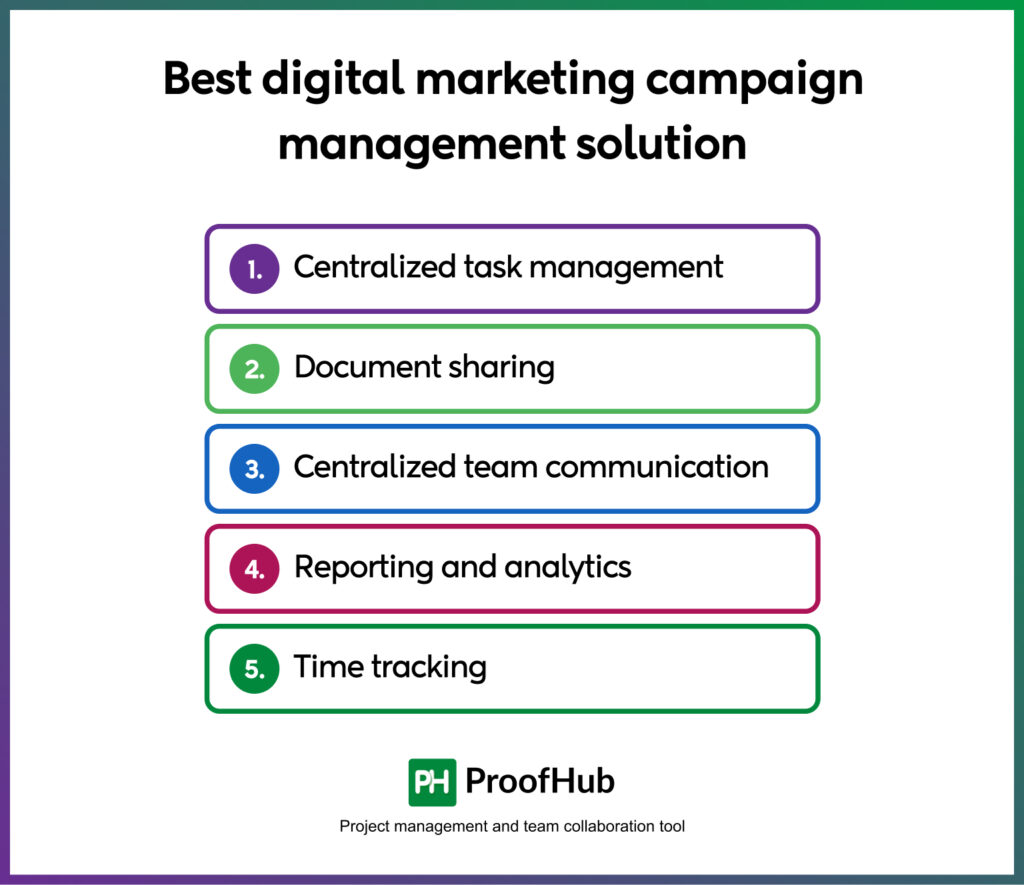
Here are some of the common abilities that make digital marketing campaign management software best:
- Centralized task management: The software should allow you to create, delegate, and manage tasks from a centralized place. You should be able to see all of the tasks of the team in one place and manage them effectively.
- Document sharing: The software should facilitate you to share the documents with the team in real-time for remote locations at a centralized place. This makes it easy to collaborate, find, share, and access documents.
- Centralized team communication: You should be able to communicate with the team in real-time. It makes it easy to share ideas, request status updates, and share additional information required to complete the task.
- Reporting and analytics: You should be able to track the progress of the tasks in real time and compare it with the planned roadmap. Look for software that helps you create accurate reports to overview the progress.
- Time tracking and finance management: For internal work management, it is very important you know where your time and money is spent. Software should allow you to track time and plan the budget of the marketing campaign.
Not sure about the top digital marketing campaign management solution? Check out these top amazing marketing project management tools to use in 2025!
Manage your marketing campaign with ProofHub
ProofHub is an all-in-one feature-rich project management and team collaboration software that facilitates you to manage marketing campaigns from a single place.
You can design innovative marketing campaigns, define clear marketing goals, hold discussions with clients, track results, and collaborate with team members in real-time.
ProofHub allows you to create custom workflows for your marketing teams to streamline marketing operations. This results in improved productivity and better alignment between teams.
(No credit card required)
FAQs
What is a campaign manager?
A campaign manager is a marketing professional who is responsible for planning, executing, monitoring, managing, and evaluating a marketing campaign. It is the responsibility of a manager to generate new leads and maximize the ROI of the campaign.
What are the common challenges in marketing campaign management?
The most common challenges in marketing campaign management include lack of alignment of a marketing campaign with business goals, lack of transparency, and poor collaboration and clarity between teams. A marketing manager can overcome these challenges using the right processes and tools.
How to measure the success of my marketing campaign?
The best way to measure the success of a marketing campaign is to set measurable goals. To make it easier and more effective, you can break a large goal into small ones and set milestones. Establish KPIs to better track and measure the performance of the marketing campaign.

